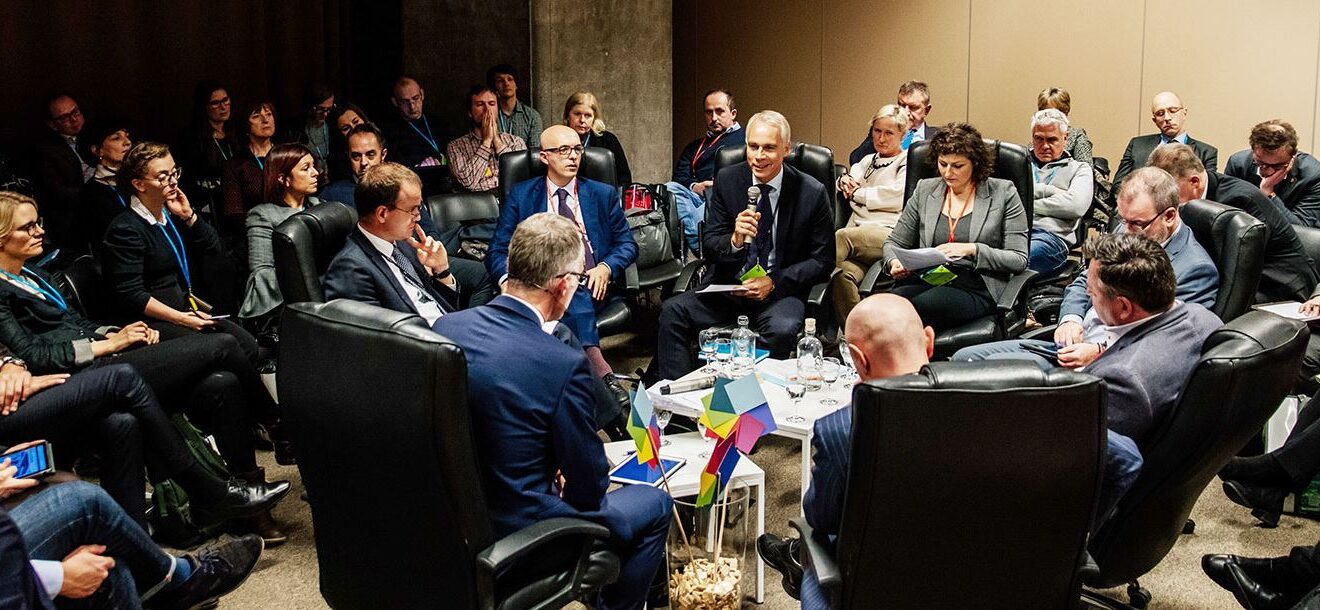

Visionect talks circular economy at EUROCITIES 2017
Visionect, 17 Nov 2017
Visionect COO Jaka Stele joined delegates from across Europe in discussing the transition to a circular economy, sharing Visionect’s experience in developing next generation products for the next generation smart city.
Jaka Stele, Visionect COO, shared Visionect’s experience in developing products that are wholly recyclable, are made almost entirely from natural materials, and are built to last.
Gathering for two days in Ljubljana, the 2016 European Green Capital, the participants of the EUROCITIES 2017 conference focusing on circular economy discussed the need for cities to drive the transition from the linear “take, make, dispose” economy model and adopt products and services that are restorative by design.
At the event, Visionect provided the conference wayfinding and scheduling displays, and shared our 10-year experience in low-power electronic paper technology, a key enabler of sustainable smart city services, from solar powered bus stops to traffic signs and more.
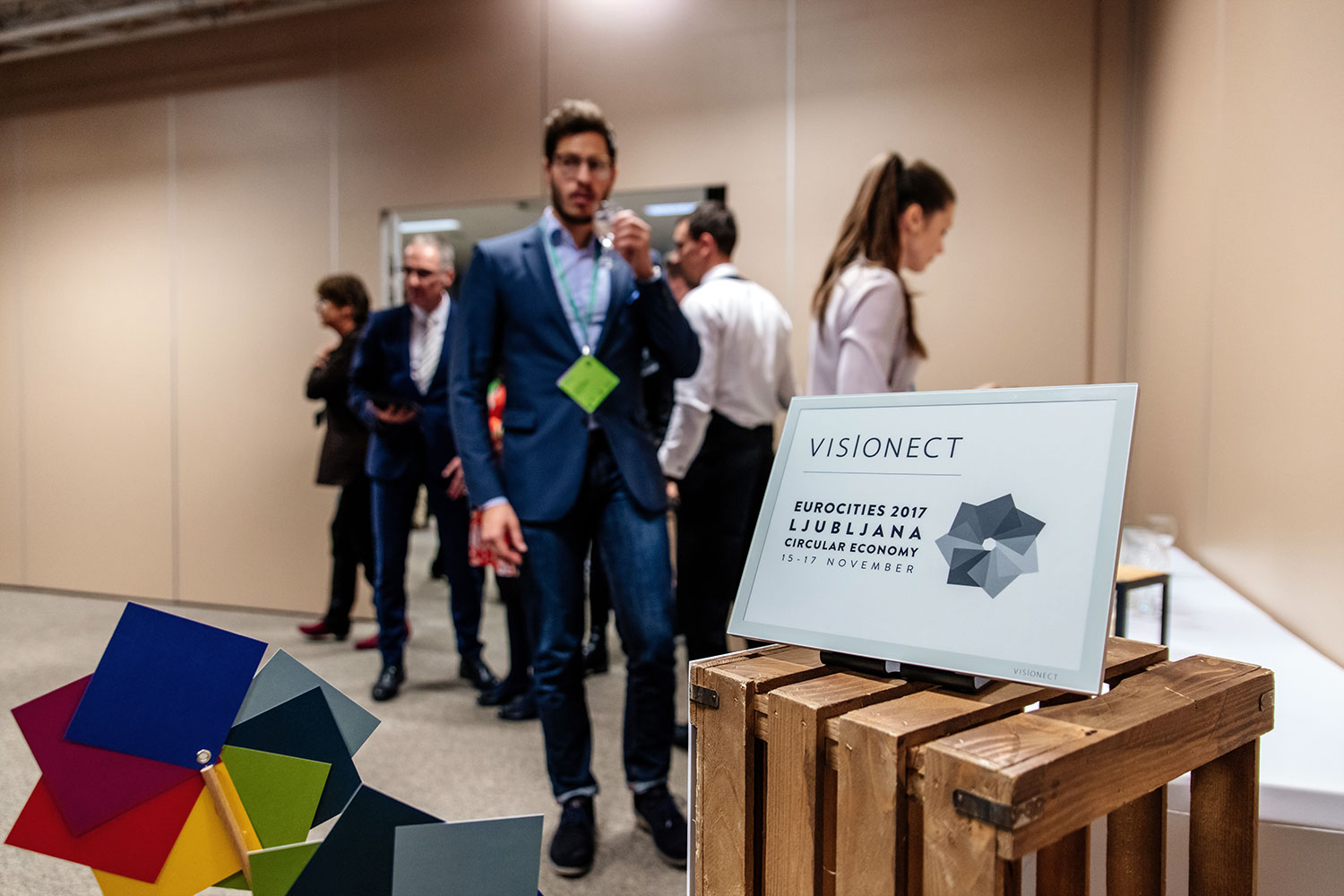
Changing the way of thinking
EUROCITIES, the network of major European cities, brings together the local governments of over 130 of Europe’s largest cities and 41 partner cities, that between them govern 130 million citizens across 35 countries.
At the conference, Visionect COO Jaka Stele joined Violeta Bulc, the European commissioner for mobility and transport, Janez Potocnik, the co-chair of the UNEP International Resource Panel and former European Commissioner for Environment, and representatives of major European cities.
You may also be interested in:
Stele shared Visionect’s experience in developing products that are wholly recyclable, are made almost entirely from natural materials and are built to last, eschewing planned obsolesce and instead focusing on planned permanence boosted by a zero failure rate.
Stele stressed the need for circular-economy-ready products to be commercially successful, well-designed and desirable on a global scale. In this way, he added, they will not only impact business models, but also change the way of thinking, bringing people into constant contact with sustainable devices and changing mentality day by day.
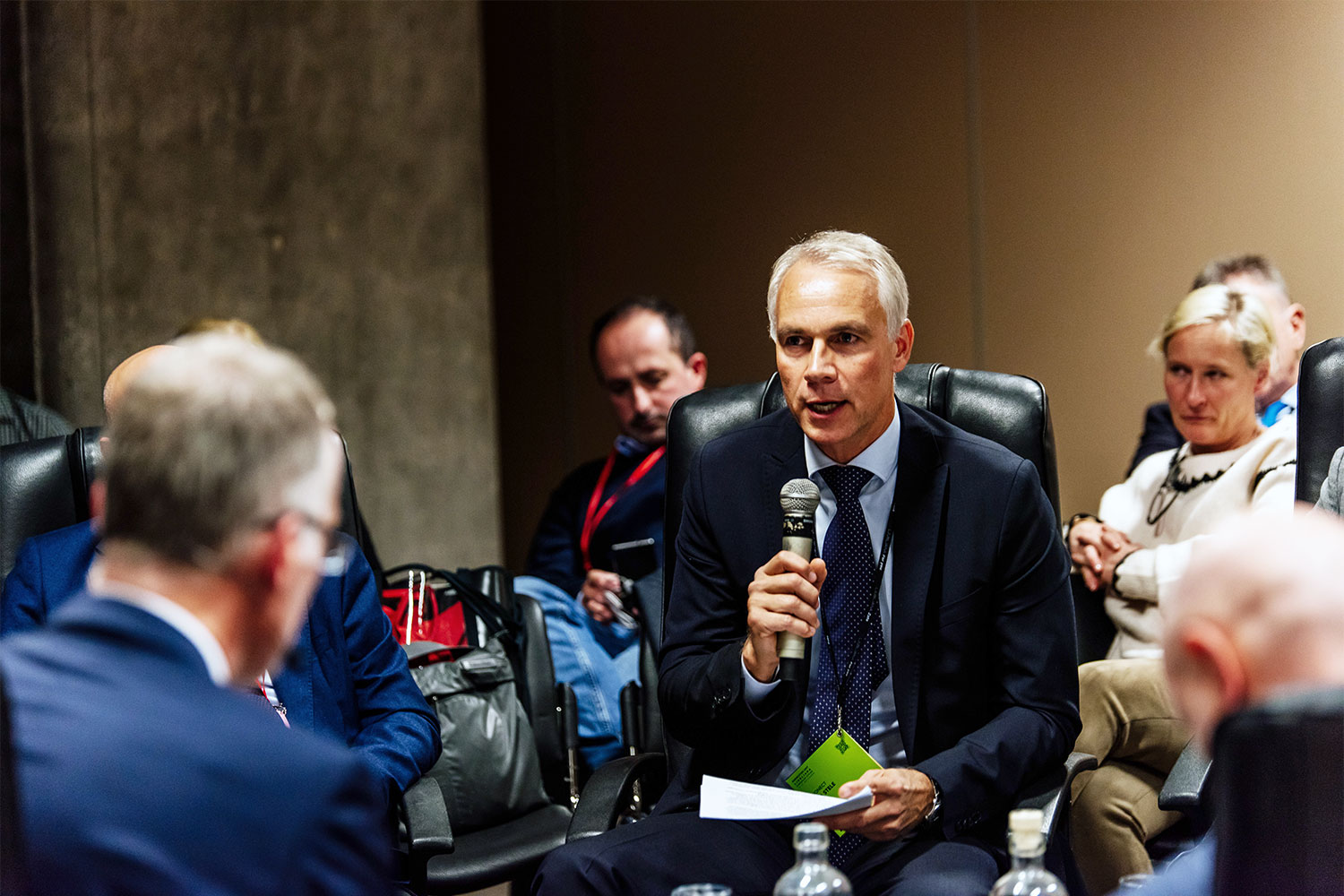
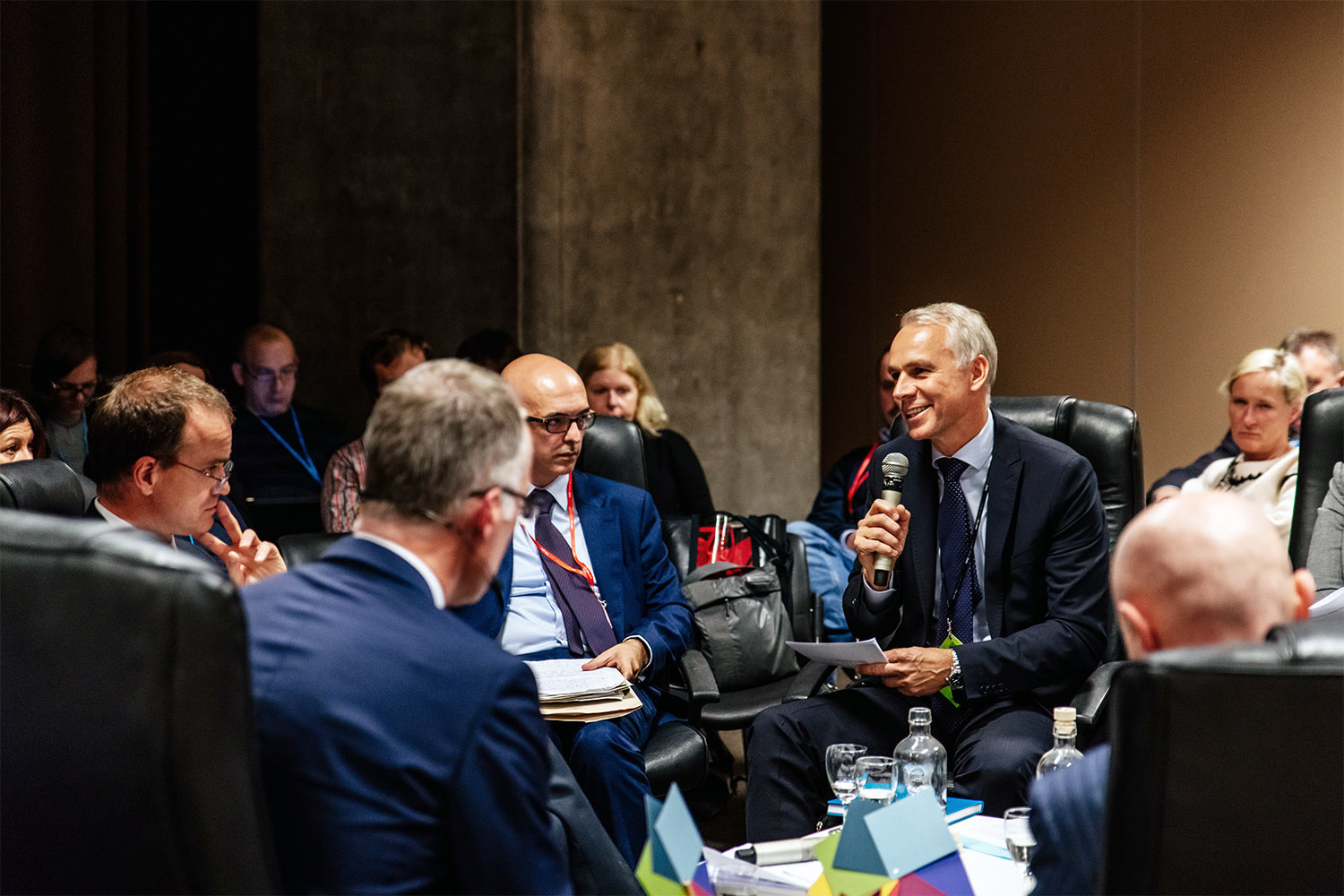
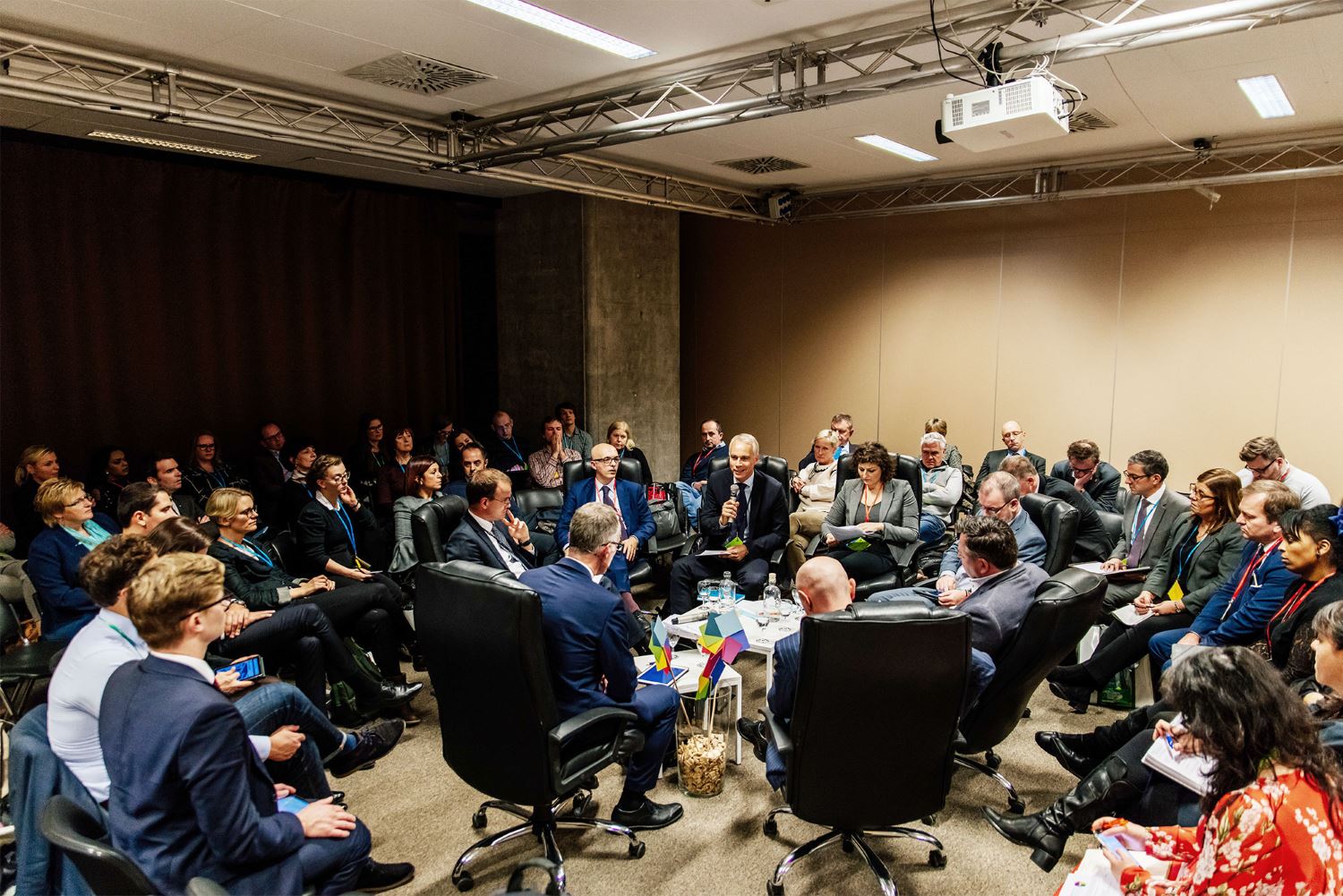
Tags

